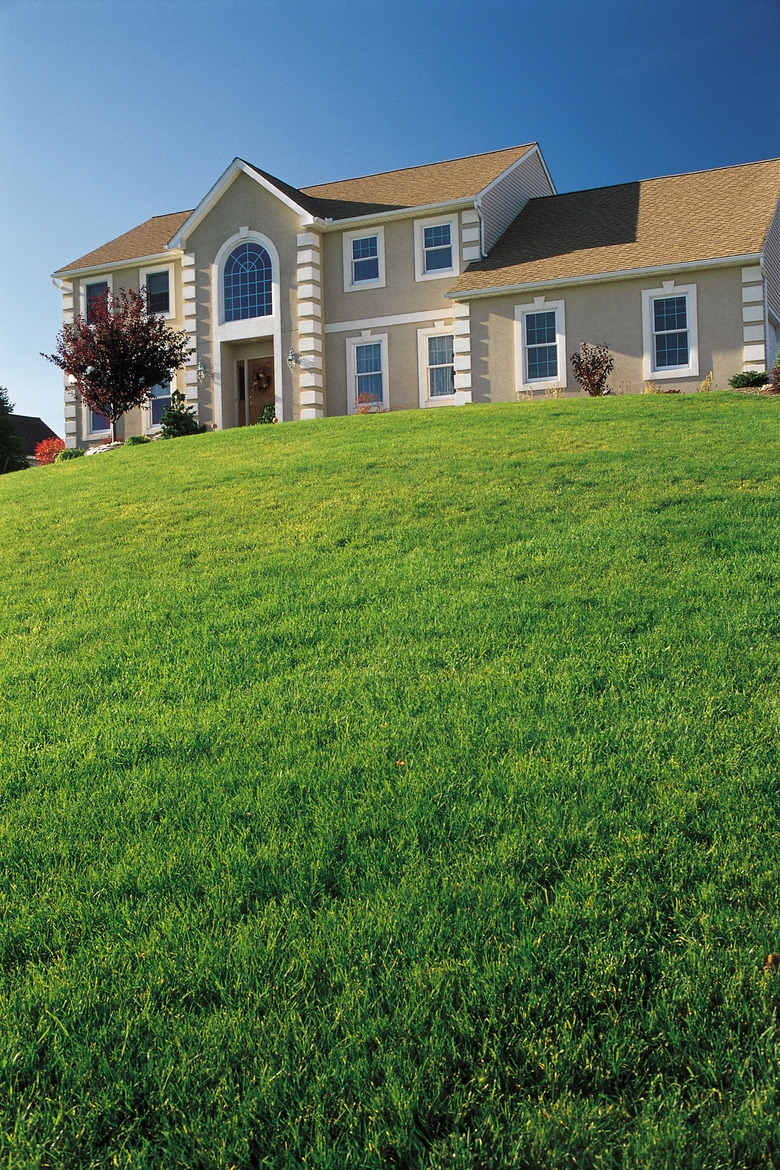What Soil Should You Use To Raise The Foundation Grade?
Where your home is situated on your lot, and how the land surrounding the site is sloped, can make the difference between a dry basement and one that is annoyingly wet after a heavy rain or major spring thaw. In order to prevent oversaturated soil around basement walls from leaching water into your home, the ground must slope away from the foundation for several feet at a grade of at least 1 inch per foot. The soil type used for the grading process is important.
Grading in Older Homes
Your home may have been properly graded when it was built, but poor landscaping practices or the gradual effects of nature may have contributed to grading problems over time. Foundation beds may have been sloped toward the house or the back fill placed around the foundation when the house was built may have settled and compacted over the years. The erosive effects of wind and water may also have altered the protective grade as soil was washed away.
Preferred Fill
The goal is to enable water to drain away from the house as quickly and as easily as possible. Well compacted soil forces the water to run across the surface without soaking in. Soils that contain obstructions to rapid run-off should be avoided. Clean fill devoid of mulch, bark or rock is preferred. Subsoils should also be analyzed as impervious clays situated beneath a layer of incorrectly-graded, porous topsoil can direct water toward your home as well.
Soil Analysis
New builds should undergo an analysis by soil scientists to determine soil texture and the amount of sand, silt and clay present in the area where a home will be built. Knowing what lies beneath your home may assist contractors in determining what type of fill and topsoil should be laid in order to prevent any future soil movement. Additional measures may be required, such as the addition of rain gutters, and troughs or swales that slope 1/4 inch per foot all the way to the street gutter.
Expansive Soils
Many homes in Texas, California, Virginia, Colorado and elsewhere throughout the United States are built on expansive soils. When this type of clay-based soil becomes wet, it expands up to 150 percent of its dry volume and can exert pressures of up to 500 lbs. per square foot. Movement may occur as pressure builds and result in foundation and framing damage. Adding well-graded soil that directs water away from your home is recommended. Contact your local building inspector's office for information on grading soil types fitted to your specific needs.
